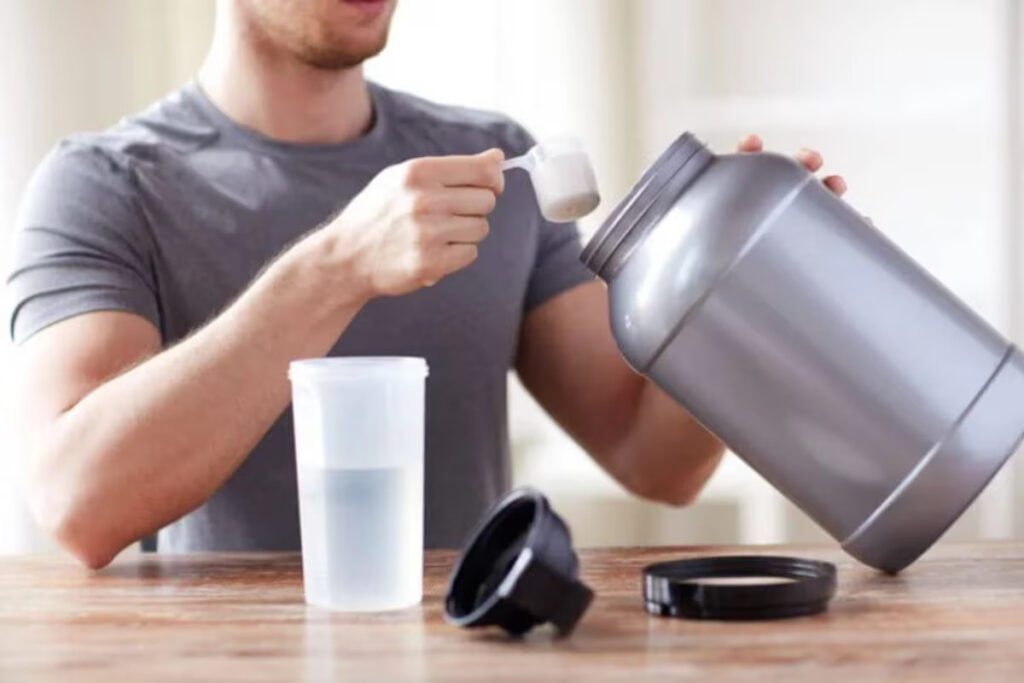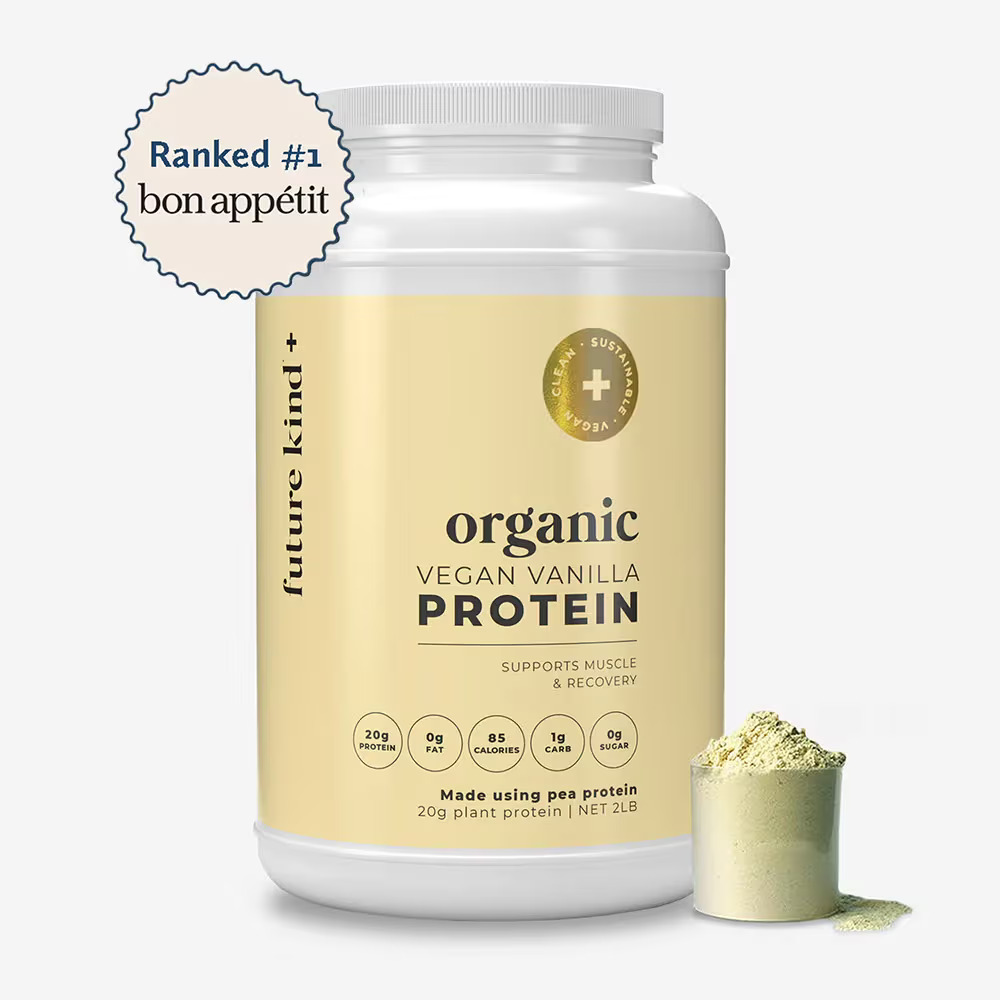Why Do Protein Shakes Make Me Nauseous: 6 Reasons
Drinking a protein shake is a great way to support your muscle mass. However, how is something supposed to be healthy, making you feel sick all of a sudden? Some users report feeling sick or nauseous after drinking a protein shake. And, while it is not very common, it might happen. There are several reasons why protein shakes make you feel weird.
So, why do protein shakes make me nauseous? In this article, we’ll go over 6 different reasons why protein shakes are making you feel sick.
Why do protein shakes make me nauseous? – The main reason might be due to the quality of the product. Other reasons include drinking it too fast, having too many additives (artificial sweeteners and inulin), you are lactose intolerant, or you are drinking it too close to your workout.

Reasons Why Your Protein Shake Is Making You Sick
1. It Has Low-Quality Protein
A low-quality protein powder might have fillers or other substances that might cause you to feel nauseous. And, since the Food and Drug Administration (FDA) doesn’t test the safety and purity of protein supplements, it’s the company’s role to guarantee good manufacturing practices and labels. As a result, , there is always the risk of drinking junk.
A high-quality protein is made up of at least 75% protein. For example, if the scoop weighs 30 g and it has 26 g of protein, it means that it is 87% protein. The higher the percentage, the more protein it will contain, and the less likely it will have fillers or sugars. Especially when it comes to reliable brands that value their reputation.
2. It Has Inulin or Sweeteners
Now, if the protein powder has a high protein percentage, but your protein shakes make you throw up, it might be one of its ingredients. Two common additives are inulin and artificial sweeteners.
Inulin is a type of fiber from foods like onions, chicory roots, oats, and soybeans. It is typically added to change the texture of the supplement, in most cases as a thickening agent. However, the problem arises when your gut doesn’t tolerate inulin.
Since the body doesn’t digest fiber, it reaches your gut intact. There, your gut microbiome digests it. Typically, this shouldn’t cause any negative problems. But, some people might get digestive issues such as bloating, gas, an upset stomach, and nausea.
Other common additives are sweeteners. The most common sweeteners in protein shakes are aspartame, sucralose, acesulfame potassium, and stevia.
While more research is still needed to determine the possible side effects of sugar-free sweeteners, approved sweeteners are recognized as safe according to available data. However they can increase the risk of an upset stomach in some people. This is most likely due to the personal perception of certain sweeteners and their aftertaste.
If all sweet protein powders make you feel uncomfortable, search for a protein shake that is as clean as possible. While this might be a challenging task, I can assure you that good options are available on the market. My protein powder recommendations for such a case are further down in the article.

3. You Might Be Taking Too Much Protein
While we need a good amount of protein, more is not always better, especially if you drink it all at once.
In the past, people used to say that the body could only handle 20 to 30 g of protein. However, evidence suggests that this is not the case. However, just because the body can take more, it doesn’t mean that your body can tolerate it.
Protein requires enzymes to be able to get digested and absorbed. Taking too much protein (more than your enzymes can handle) can lead to indigestion, which can be why protein powder makes you sick.
If the problem is that you are taking too much protein at once, break it down into smaller takes. Instead of taking one massive dose, break it down into smaller snacks throughout the day. This can make it easier for the body to digest.
4. You Drink the Shake Too Fast
When you drink too fast, it causes you to swallow more air. The most common side effect is bloating and gas, but in some cases, it can also lead to nausea. So, if you are in a hurry and drink your protein shake too fast, that is why you can feel the symptom of nausea after a protein shake.
Next time, make sure you take your time while drinking your protein shake (or any other food or drink you are taking).
5. You Might Be Lactose or Protein Intolerant
Research shows that over 68% of the world’s population is lactose intolerant. However, this might be lower or higher depending on your origins.
The problem with lactose intolerance is that the symptoms can go from mild to severe. Some people suffer from negative symptoms, but don’t realize they have a lactose intolerance until they get studies.
Most protein powders are lactose-free or in very small amounts. However, for people with severe lactose intolerance, the smallest particle can produce symptoms, and since whey comes from milk, that might be why whey protein makes you sick.
If you took a lactose sensitivity test and it came up negative, the reason might not be lactose, and it might be you are allergic to cow’s milk protein. This means that no matter if the product is lactose-free, you might still get nauseous or any uncomfortable side effects.
If you are unsure if you are getting sick because you are lactose intolerant or are allergic to a cow’s milk protein, switch to a plant-based protein. This can give you a better understanding of why you are getting those symptoms.

6. You Drink It Too Close to Your Workout
If you switch to a vegan protein powder but are still nauseous, there might be another reason why the vegan protein powder makes you sick. The final reason why your protein shake might make you sick is that you are drinking it too close to your workout.
When you work out, the body focuses on sending blood and oxygen to your organs and muscles. Your sympathetic nervous system slows down your digestion so its energy is diverted to other areas of your body. Since protein takes longer to digest, taking it too close, during or immediately after the workout, doesn’t give your body enough time to start activating the digestive process.
People often believe that they need to drink protein immediately after a workout. However, research shows that the so-called “anabolic window” is a lie. You have several hours after a workout to get a good protein dosage. So, if you want to avoid getting sick from drinking your protein shake, make sure you avoid taking it so close to your workout.
Choosing A Whey Protein That Doesn’t Make You Nauseous
The best thing you can do to prevent your protein shake from causing you to feel nauseous is to make sure you select the best protein powder.
So, how can you select a good protein shake?
- Make sure it is composed of at least 75% protein.
- In this case the fewer ingredients it has, the better.
- Plant-based proteins are easier to digest.
- Avoid sweeteners (or find one that doesn’t cause trouble), flavoring, or colorings.
Now, you might not want to do the task of reading every label and determining which is the best protein powder.
In that case, don’t worry. I’ve got your back! A great choice is Future Kind’s organic vegan protein powder. It has only four ingredients.
That’s right! In this protein powder, organic pea protein isolate (easier to digest), organic flavors, organic guar gum, and organic stevia for those who do not accept the taste of artificial sweeteners.
On top of that, you get a 30-day money-back guarantee and free US shipping on orders over $70.
One scoop provides 20 g of protein, enough to give the body enough time to digest. If you need more protein, you can take another scoop at a different time.

FAQ
Is It Okay to Drink Protein Shakes on an Empty Stomach?
Yes, in most cases, you can drink a protein shake on an empty stomach without any digestive problems. However, for some people, it might be too harsh to take on an empty stomach, increasing the risk of side effects such as bloating, gas, stomach cramps, diarrhea, and nausea.
Can Protein Powder Make You Sick?
While it is not common, yes, protein powder can make you sick. The ingredients and the type of protein it has can increase the chances of causing any digestive problems.
Do You Have to Drink Protein Shakes Within 20 Minutes?
It’s said that there is a recovery time of 20 minutes after working out for protein to reach the muscles and support muscle synthesis. However, research findings have determined that there is no such thing as a 20-minute window. The most important part for supporting muscle mass is the total amount of protein you eat throughout the day.
Conclusion
So, can protein powder make you sick?
Yes, while it is not always the case, protein powder can make you feel nauseous. The main reason why you are getting sick is probably because you are drinking low-quality protein.
If that is not the case, it might be the additives it has, the type of protein you are drinking, the speed at which you drink it can also affect, or you are drinking it too close to your workout.
Let us know in the comments which tip allowed you to reduce your nausea symptoms after drinking your protein shake!
Also read:
- Is It Bad to Drink Protein Shakes Without Working Out
- What Do You Mix Protein Powder With
- How Many Protein Shakes a Day
- How to Make Protein Powder Taste Good
- Can You Put Protein Powder in Cereal
- Best Egg White Protein Powder
- Top Muscle Recovery Supplements
References:
- Dietary Supplements // FDA: https://www.fda.gov/consumers/consumer-updates/fda-101-dietary-supplements
- Inulin: Properties, health benefits and food applications // sciencedirect: https://www.sciencedirect.com/science/article/abs/pii/S0144861716303812?via%3Dihub
- Implications for daily protein distribution // ncbi: https://www.ncbi.nlm.nih.gov/pmc/articles/PMC5828430/
- How common is lactose malabsorption? // niddk: https://www.niddk.nih.gov/health-information/digestive-diseases/lactose-intolerance/definition-facts
- Cow Milk Allergy // ncbi: https://www.ncbi.nlm.nih.gov/books/NBK542243/
Why Trust Us?
With over 20 years in Olympic Weightlifting, our team does its best to provide the audience with ultimate support and meet the needs and requirements of advanced athletes and professional lifters, as well as people who strive to open new opportunities and develop their physical capabilities with us.
By trusting the recommendations of our certified experts in coaching, nutrition, dietology, and sports training programming, as well as scientific consultants, and physiotherapists, we provide you with thorough, well-considered, and scientifically proven content. All the information given in the articles concerning workout programming, separate exercises, and athletic performance, in general, is based on verified data. We ensure that you can rely on our professionals’ pieces of advice and recommendations that can be treated as personalized ones which will benefit you and fully meet your needs.
The product testing process is described in more detail here
Author: Oleksandr Maksymenko
Certified Sports Nutritionist,
MSc Sports Dietetics
Specializing in: Weight management, Fitness / Sports nutrition
Oleksandr is a professional fitness nutritionist certified by the Fitness Professional Association (FPA). He follows the principles of evidence-based dietetics and fosters a healthy relationship with food in his clients, ensuring there are no strict prohibitions on their favorite foods or frequent lapses. His primary goal is not only to achieve results for you but also to sustain them over the long term, all while enjoying tasty and delicious food.








